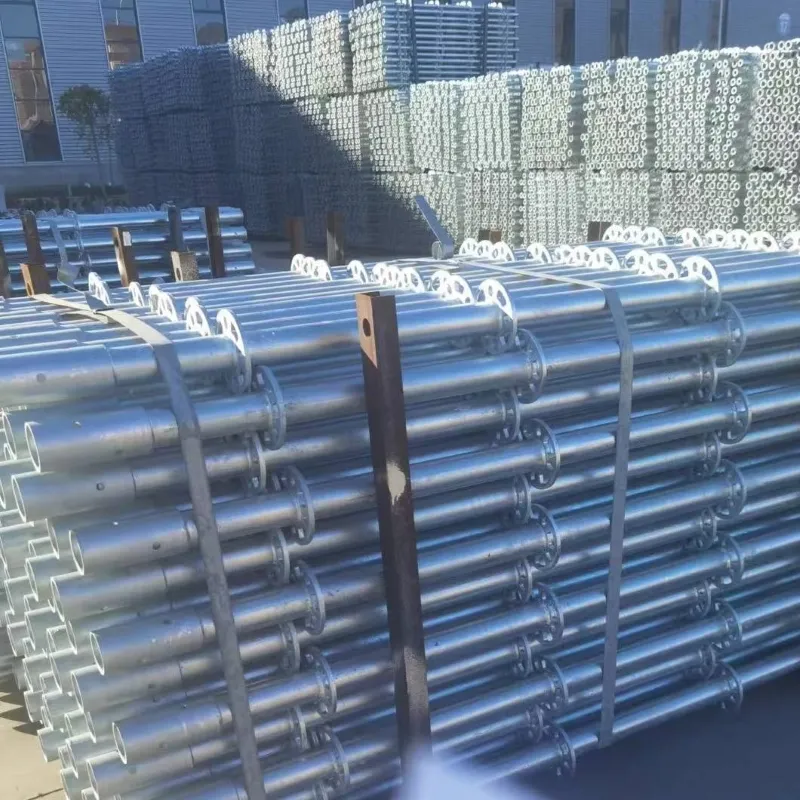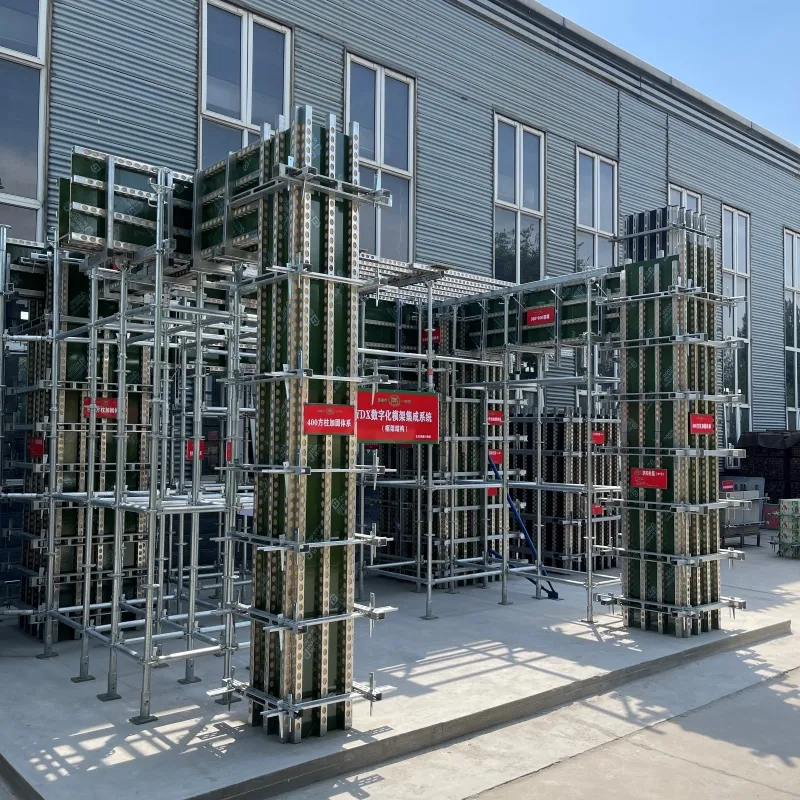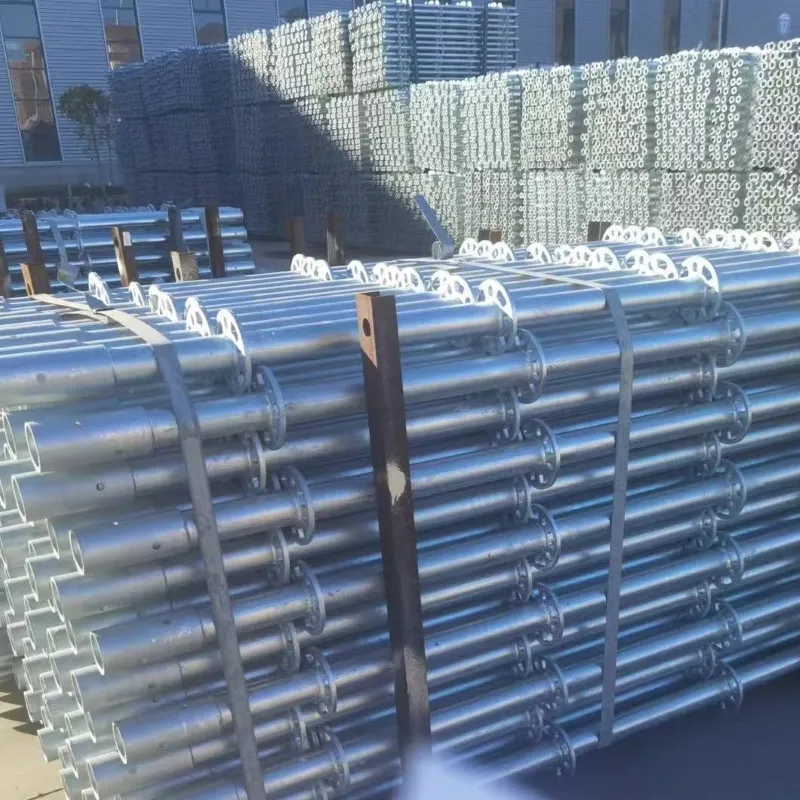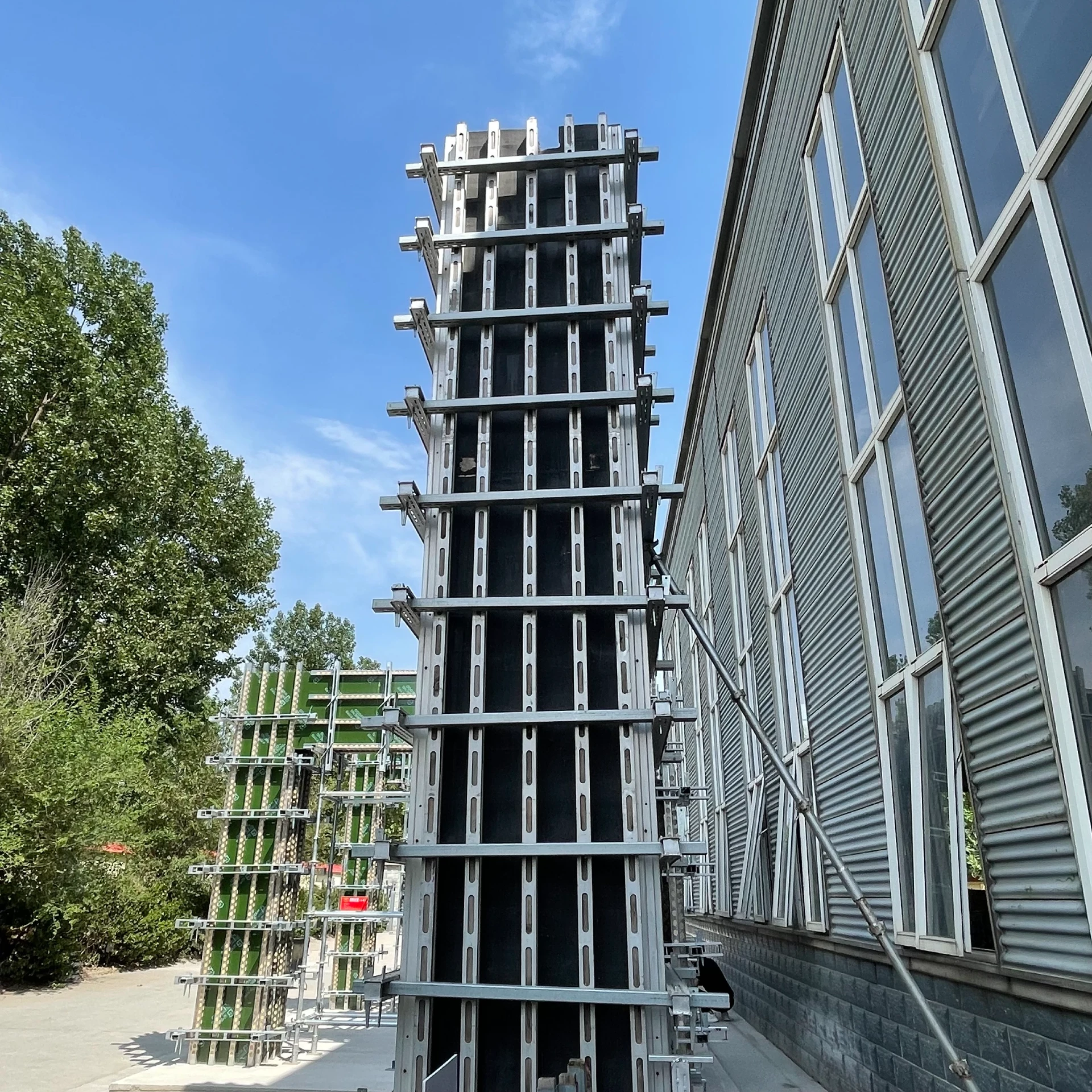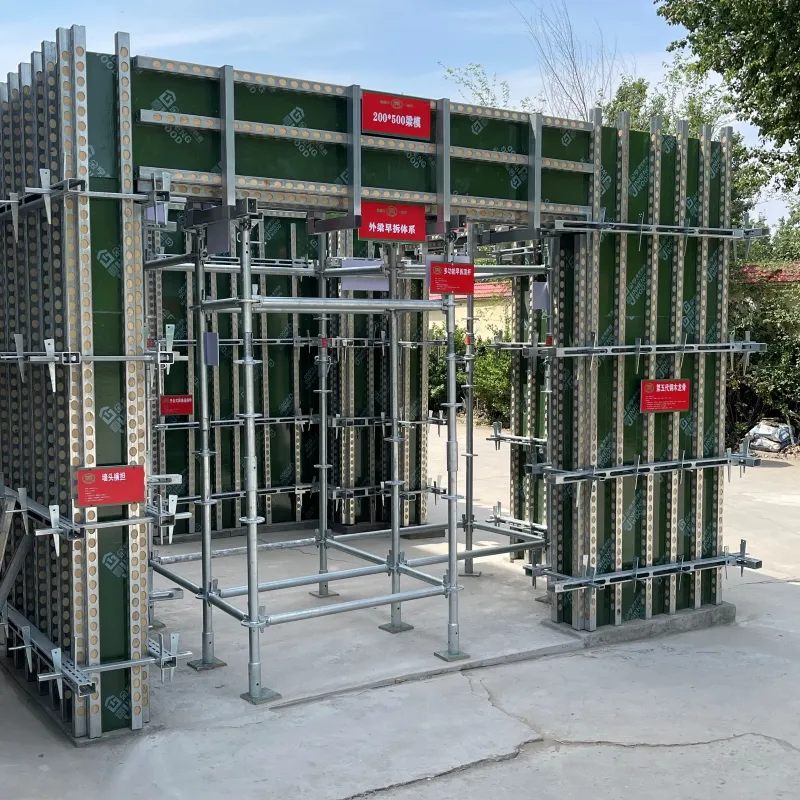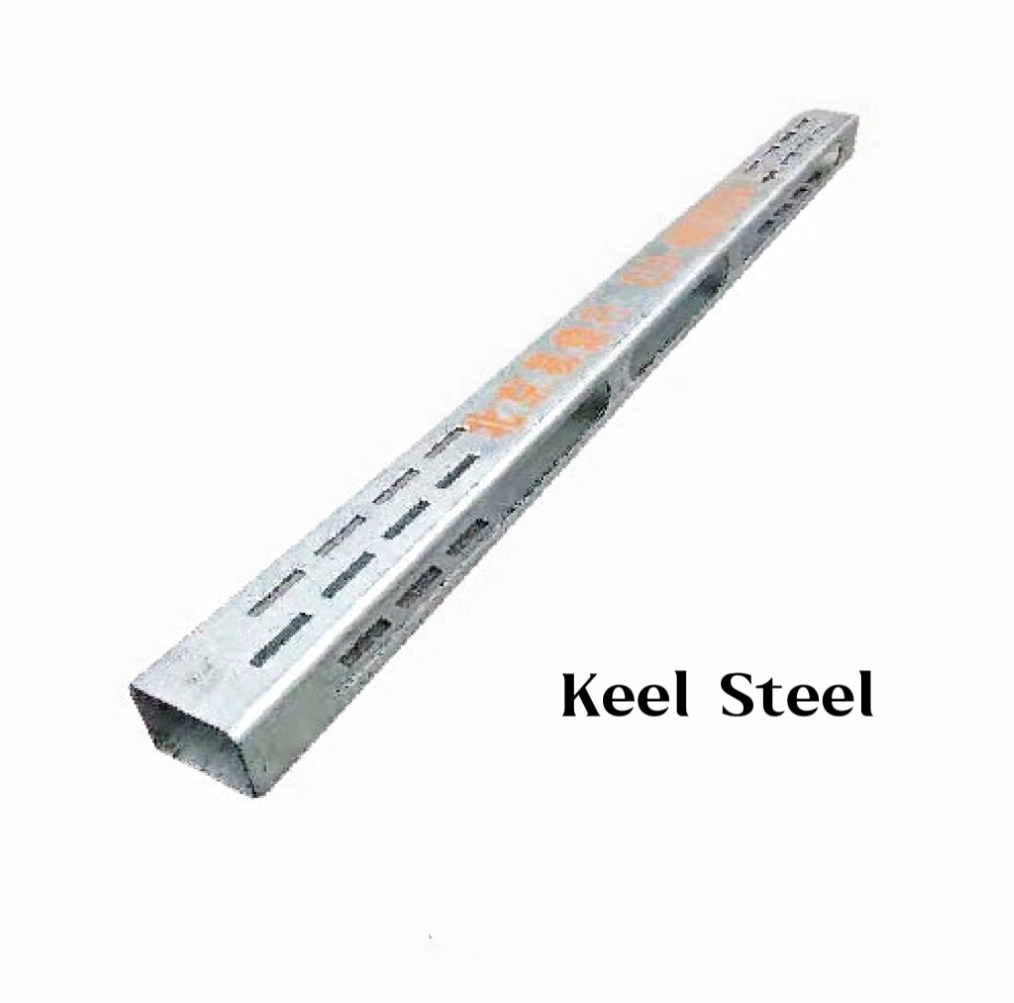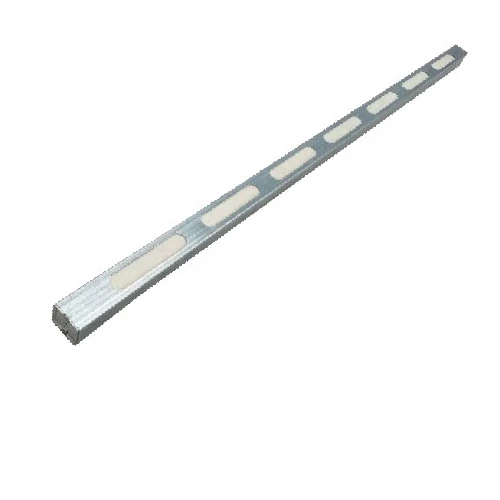
wall formwork system
In the realm of modern construction, the wall formwork system stands as a cornerstone of efficiency and innovation, revolutionizing how structures are erected. As the building industry pushes towards greater demands for time efficiency, cost-effectiveness, and sustainability, the advent of advanced wall formwork systems presents a paradigm shift in construction practices.
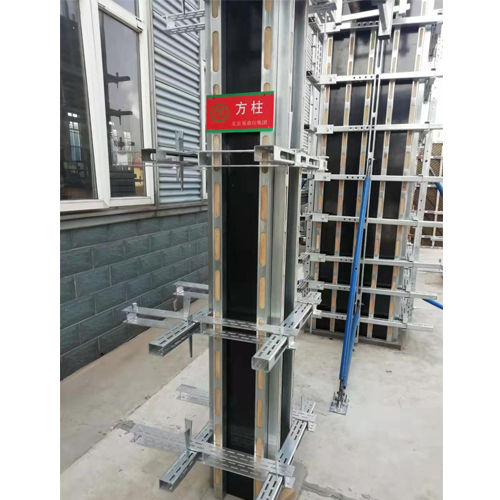
Wall formwork systems are ingeniously designed to mold concrete into predetermined shapes, providing the requisite support while the concrete sets and hardens. These systems are pivotal in maintaining structural integrity, especially for load-bearing walls. The expertise behind these systems ensures that they cater to diverse architectural designs, predominating in both residential and commercial construction.
One of the paramount advantages of wall formwork systems is their ability to drastically reduce construction time. Traditional masonry techniques, although reliable, inherently consume more time due to their labor-intensive processes. Conversely, wall formwork systems streamline the building process, enabling quick assembly and disassembly. This translates to a significant reduction in project timelines, a benefit that directly appeals to both contractors and clients eager to expedite their projects.
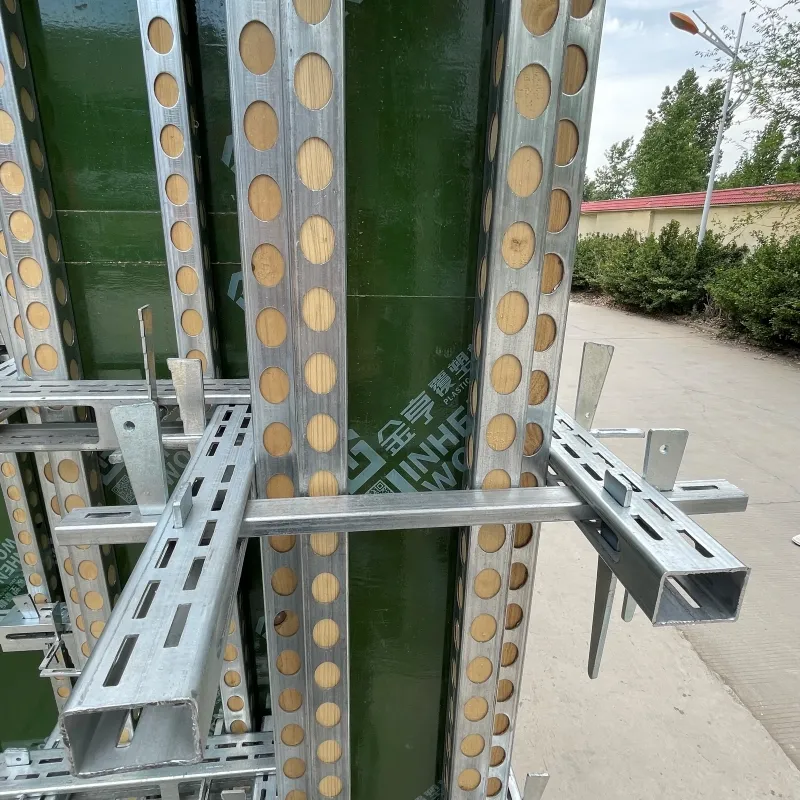
The authority of wall formwork systems is further substantiated by the extensive research and development invested in their design and functionality. Engineers and construction experts continuously refine these systems, integrating cutting-edge materials and technologies to enhance their performance. For instance, the incorporation of lightweight, durable materials in formwork reduces labor strain and facilitates handling, thereby improving worker safety and efficiency on-site.
wall formwork system
Moreover, the environmental credibility of wall formwork systems cannot be overlooked. As sustainability becomes a pressing issue in construction, these systems offer an eco-friendly alternative. Reusable formwork elements contribute to a reduction in raw material consumption, aligning with green building standards and reducing the carbon footprint of construction projects. This sustainability aspect not only resonates with environmentally conscious builders but also complies with increasing regulatory requirements on sustainability.
Trustworthiness in wall formwork systems is achieved through rigorous quality control processes and adherence to international safety standards. Manufacturers of these systems uphold strict quality checks, ensuring that each component meets the required safety and durability criteria. This commitment to quality reassures construction professionals of the reliability and longevity of the formwork, ensuring the structural soundness of the erected buildings.
Furthermore, the versatility of wall formwork systems speaks to their broad applicability across different types of projects. Whether it is high-rise buildings, infrastructure projects, or custom residential homes, these systems can be adapted to meet varying structural demands. Their modular design allows for easy customization, accommodating unique architectural features without compromising stability or aesthetic appeal.
In sum, wall formwork systems exemplify a confluence of experience, expertise, authority, and trustworthiness in modern construction. They offer an indispensable tool for builders, marrying efficiency with innovation while adhering to sustainable practices. For those looking to enhance construction quality and speed, investing in advanced wall formwork systems is not just a choice, but a strategic imperative to stay competitive and responsible in the ever-evolving landscape of construction.
-
Top Scaffolding Solutions for Every Construction ProjectNewsApr.21,2025
-
Scaffolding Solutions for Every ProjectNewsApr.21,2025
-
Innovative Construction Solutions for a Stronger FutureNewsApr.21,2025
-
Essential Steel Keel Solutions for Maximum Protection and PerformanceNewsApr.21,2025
-
Building a solid foundation: The importance of high-quality concrete reinforcement accessoriesNewsApr.21,2025
-
Effective Reinforcement for Stronger StructuresNewsApr.21,2025
-
The Essential Role of Timber and Steel in Modern ConstructionNewsMar.10,2025




